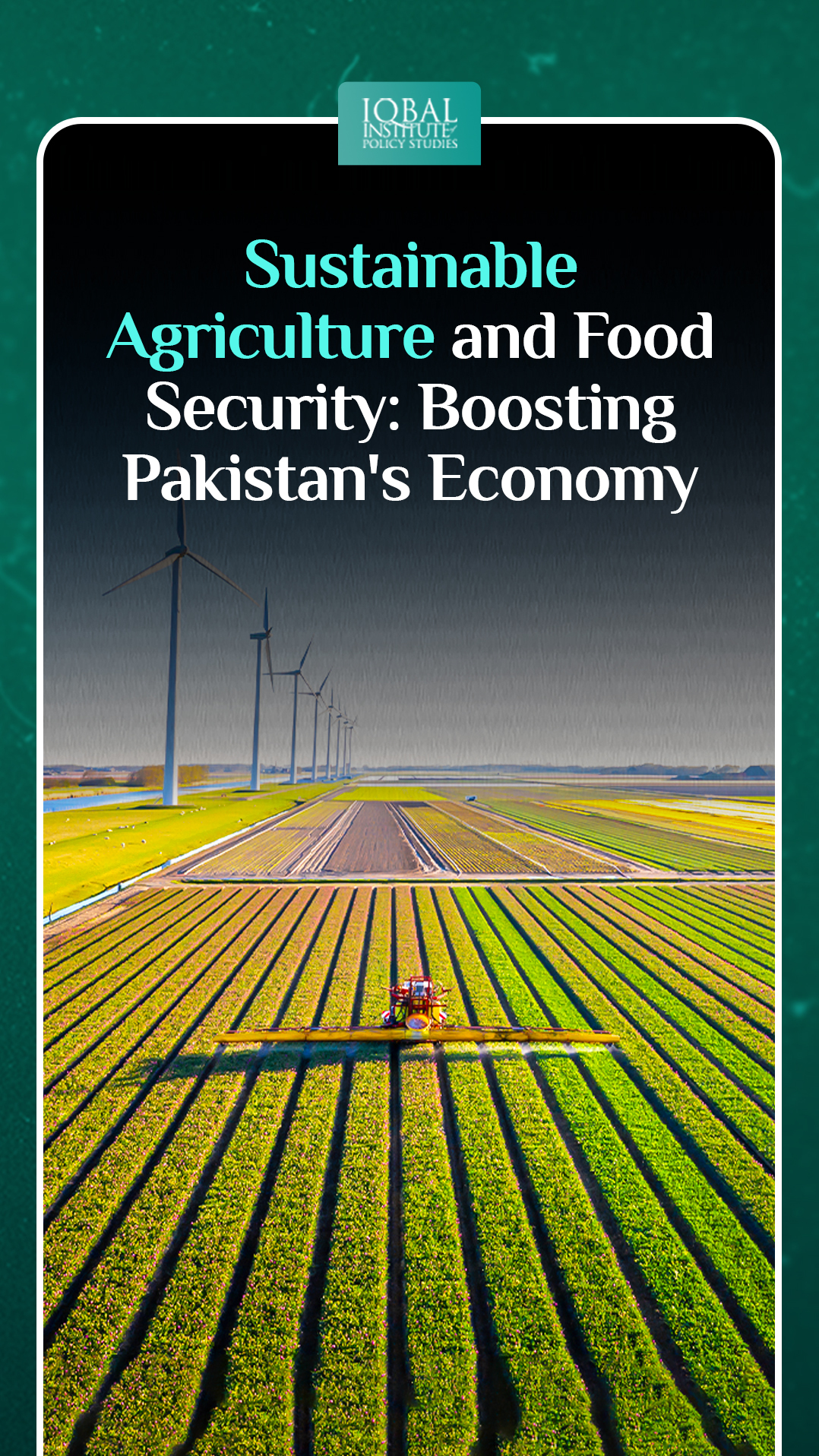Pakistan, a country known for its rich agricultural heritage, faces numerous challenges in achieving food security and sustaining its economy. With a growing population and increasing pressure on natural resources, the need for sustainable agriculture practices has never been more critical. In this blog, we will explore the importance of sustainable agriculture in Pakistan and how it can contribute to both food security and economic growth.
The Significance of Agriculture in Pakistan
Agriculture has been the backbone of Pakistan’s economy for centuries. It contributes significantly to the country’s GDP, provides livelihoods for a large portion of the population, and is the primary source of food production. However, the sector faces several challenges, including water scarcity, soil degradation, and climate change, which threaten its long-term sustainability.
Water Scarcity
Pakistan is among the most water-stressed countries globally, and its agriculture heavily relies on irrigation from the Indus River system. Unsustainable water practices, such as excessive groundwater pumping and inefficient irrigation systems, have led to water scarcity issues, risking food production.
Soil Degradation
Soil erosion, salinity, and declining soil fertility are widespread problems in Pakistan. Unsustainable farming practices, such as monocropping and excessive use of chemical fertilizers, have accelerated soil degradation, reducing its ability to support crops.
Climate Change
Pakistan is experiencing the adverse effects of climate change, including erratic weather patterns, prolonged droughts, and extreme temperatures. These changes pose significant challenges to crop yields and livestock farming.
Sustainable Agriculture as a Solution
Sustainable agriculture offers a viable solution to these pressing challenges. It emphasizes practices that conserve natural resources, promote biodiversity, and minimize environmental impacts while ensuring food security and economic stability. Here are some key principles of sustainable agriculture and their potential benefits for Pakistan:
Diversified Cropping Systems
Sustainable farming encourages crop diversification, which reduces the risk of crop failure due to pest outbreaks or adverse weather conditions. Crop rotation and intercropping can also enhance soil fertility and reduce the need for chemical inputs.
Efficient Water Management
Implementing modern irrigation techniques, such as drip and sprinkler systems, can significantly reduce water wastage. Moreover, adopting drought-resistant crop varieties can help mitigate the impact of water scarcity.
Organic Farming
Shifting towards organic farming practices reduces the use of synthetic pesticides and fertilizers, thus minimizing soil and water pollution. Organic farming also commands higher prices in global markets, offering economic benefits to farmers.
Conservation Agriculture
This approach involves minimal soil disturbance, permanent soil cover, and crop rotation. It helps maintain soil health, reduce erosion, and enhance overall agricultural sustainability.
Agroforestry
Integrating trees into agricultural landscapes not only provides additional sources of income through timber and fruit production but also aids in carbon sequestration and soil improvement.
Benefits of Sustainable Agriculture
Improved Food Security
Sustainable agriculture practices can lead to higher and more stable crop yields over time, ensuring a consistent food supply for Pakistan’s growing population.
Economic Growth
By adopting sustainable farming techniques, farmers can reduce input costs, increase their income, and access premium markets for organic and sustainably produced goods.
Environmental Conservation
Sustainable agriculture helps protect ecosystems, reduce greenhouse gas emissions, and conserve water resources, contributing to long-term environmental sustainability.
Resilience to Climate Change
Diversified cropping systems and climate-smart practices make agriculture more resilient to the effects of climate change, reducing vulnerability to extreme weather events.
Enhanced Livelihoods
Sustainable agriculture practices can improve the well-being of rural communities by creating employment opportunities and improving access to nutritious food.
Government Initiatives and Policies
To promote sustainable agriculture in Pakistan, the government has initiated various policies and programs. These include:
The Prime Minister’s Agriculture Emergency Program
Launched in 2019, this program aims to enhance agricultural productivity, improve water management, and provide financial support to farmers.
National Food Security Policy
The policy emphasizes the development of sustainable agriculture practices, including crop diversification and water-efficient irrigation.
The Billion Tree Tsunami Afforestation Project
This initiative focuses on increasing forest cover across the country, which can have positive spillover effects on sustainable agriculture.
Subsidies for Organic Farming
The government has provided financial incentives and subsidies to encourage the adoption of organic farming practices.
Challenges and the Way Forward
Despite the numerous benefits of sustainable agriculture, there are challenges to its widespread adoption in Pakistan. These challenges include the need for farmer education and training, access to financing, and the development of infrastructure for sustainable practices.
To overcome these challenges and further promote sustainable agriculture, the following steps can be taken:
Farmer Education
Invest in farmer training and extension services to disseminate knowledge about sustainable practices.
Access to Credit
Facilitate farmers’ access to credit and financial resources to invest in sustainable farming techniques.
Research and Innovation
Support agricultural research and development to create drought-resistant crop varieties and develop sustainable farming technologies.
Infrastructure Development
Invest in modern irrigation systems and transportation networks to facilitate the movement of agricultural products.
Conclusion
Sustainable agriculture is not only essential for ensuring food security in Pakistan but also for boosting the country’s economy and safeguarding its natural resources. By embracing sustainable farming practices, Pakistan can address the challenges of water scarcity, soil degradation, and climate change while improving the livelihoods of its farming communities. It is imperative that the government, farmers, and other stakeholders work together to promote and implement sustainable agriculture practices for a more prosperous and resilient future.
This article is written by Radma Nouman. Radma is a research analyst at the Iqbal Institute of Policy Studies (IIPS).



Leave a Reply